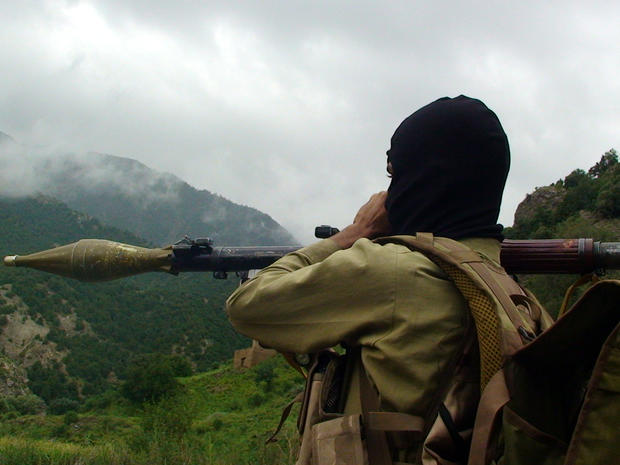Pakistan plans anti-militant push in rugged region
(CBS News) ISLAMABAD - A senior U.S. general on Friday concluded a trip to Pakistan a day after two major terrorist attacks, a powerful reminder of a growing security challenge to the south Asian nuclear-armed country.
But senior Pakistani government officials and Western diplomats who spoke to CBS News said the visit by Gen. James Mattis, commander of the Florida-based U.S. Central Command, should be seen for its relevance to an upcoming anti-militant campaign by Pakistan's armed forces.
"The contacts between the highest levels of the U.S. military and the Pakistani military at this time are very important," one senior Western diplomat said on condition of anonymity. "A deeper U.S. engagement with Pakistan will only help to improve their coordination ahead of the new campaign."
In the past fortnight, Western diplomats and Pakistani officials have said the Pakistani army will soon launch a new military operation across the rugged north Waziristan region along the Afghan border.
If so, this may finally see Pakistan live up to the expectations of the United States after being urged by U.S. officials for years to target militant sanctuaries in a region that is home to some of the most hard-core anti-U.S. militants.U.S. officials insist north Waziristan poses not only a threat to U.S.-led coalition troops in Afghanistan, which have been targeted by militants operating from the area, but also to Pakistan. After the two attacks on Thursday, including one targeting an airbase of the Pakistani air force and another killing at least 22 people of Pakistan's Shia Muslim minority sect, the Tehreek-e-Taliban Pakistan (TTP) claimed responsibility.
Pakistan's army and intelligence officials said the TTP operates from the country's lawless region along the Afghan border, which includes north Waziristan.
"The TTP poses the biggest threat today to Pakistan's security and its menacing effect must be neutralized," said one Pakistani intelligence official who spoke to CBS News on condition of anonymity.
After Mattis' departure, the U.S. Embassy in Islamabad issued a brief statement saying "a wide range of common security issues, to include militant network activities and measures to improve cross-border cooperation (between Pakistan and Afghanistan)" were discussed in Mattis' meetings with senior Pakistan army officials, including Gen. Ashfaq Pervez Kayani, the army's chief of staff. No other details were given.
But the Western diplomat who spoke to CBS News said, "The upcoming campaign in north Waziristan was definitely on the agenda. For the U.S., indications of Pakistan finally coming around to a campaign in north Waziristan is very important and it does not want the momentum to be lost."
However, analysts have warned, anti-U.S. sentiment will likely grow if the push in to north Waziristan is seen to be taking place under direct pressure from the U.S.
"Why should Pakistan be pushed into a war against its own people because that is what the U.S. wants?" asked Ayaz Khan, an office worker.
Speaking to CBS News in Islamabad's central Aabpara market, Khan echoed a popular view in a country rife with anti-U.S. sentiment, saying, "The Americans are enemies of Pakistan. They are only interested in seeing more bloodshed in Pakistan."
